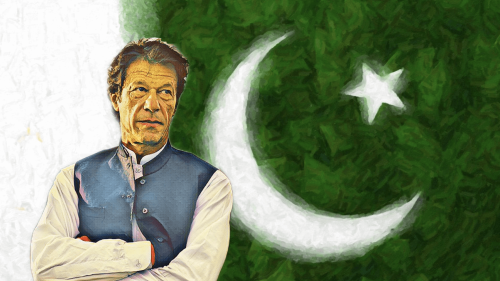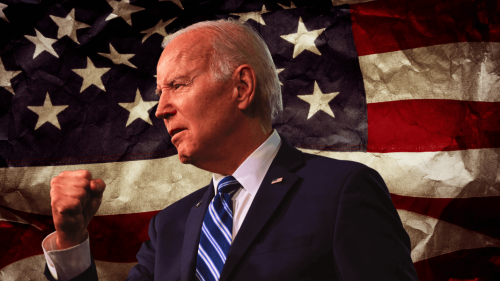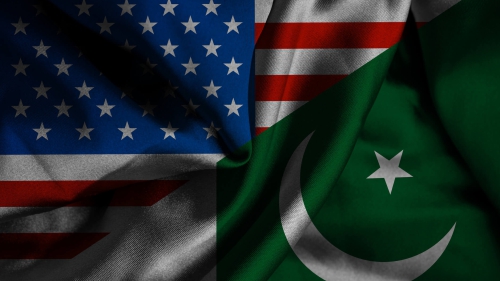Pakistan: The Making of a Coup and Beyond
History has a tendency of repeating itself. It certainly is true in the case of the former Prime Minister of Pakistan, Nawaz Sharif whose penchant to shoot himself in the foot while at the apogee of his power has baffled political commentators.
It was three years ago, that Sharif escaped the legislative bill of accountability that the former Law Minister Fakhruddin Ebraham -- in the caretaker government of Meraj Khalid -- had drawn up and was conveniently tossed aside by the then President of Pakistan, Farooq Leghari at the urging of the United States. It enabled Sharif to contest the farce of an election that was imposed on a nation reeling from the pervasive and conventional type of plunder carried on by Benazir Bhutto and Zardari.
The disillusioned electorate, especially Bhutto's former supporters, chose to boycott the election, leaving Sharif to grab a "dubious mandate." Systematically, he then proceeded to dismantle the pillars of power, leaving the Supreme Court and the Presidency in tatters. The Armed Forces too had to bear the brunt of his wrath with General Karamat, the former Army Chief, meekly submitting to the dictates of a Prime Minister growing too big for his boots.
As Sharif garnered more power at the expense of the other institutions of the state, the economy stagnated and the country became mired in recession. As the economy sank, so did law and order. Theft and kidnappings rose sharply. And thanks to the legacy of the "Klashinakov Culture" brought about by the Afghan War, the weapons and infrastructure for crime were already in place. The smoldering cauldron of sectarian strife was also ignited by extremist religious zealots. Pakistan, or the "Land of the Pure," as its called, stood adulterated in every respect, with a visionless and myopic leadership at its helm who had no other strategy than to perpetuate its rule.
On the external front, the trappings of Sharif's mandate presented an opportunity to the United States. A pliant Prime Minister, who had made the National Assembly into a rubber stamp for decisions taken by his "inner council," could be used to muster the necessary votes for capping the South Asian nuclear genie and for resolving the Kashmir issue.
An economically destitute Pakistan, dependent on trade with its arch-foe India is in no position to question any solution imposed by the world's lone superpower. The blueprints of a deal with India were conjectured in the media whereby India would withdraw from some territory along the Line of Control (LOC), effectively dividing the Kashmir state. Shahbaz Sharif, former Chief Minister of Punjab Province and the brain behind the former regime, was to have negotiated this deal at the U.S. State Department with the final sealing coming after the re-inauguration of Vajpayee as Prime Minister of India. But the Kargil retreat sowed the seeds of discord between the Army and Sharif that finally culminated in the latter's removal.
After confirming General Pervez Musharraf only a few days ago as both the head of the Joint Chiefs Staff Committee (JCSC) and Chief of the Army Staff of the Armed Forces (COAS), Sharif sacked Musharraf while he was on an official visit to Sri Lanka. It appears that it was only after the somewhat lower echelons of the Army realized the perfidy of the country's new military chief, General Ziauddin Ahmad, that they took evasive action and mounted a coup.
Incidentally, Ahmad was in Washington a few weeks ago, ostensibly invited by the CIA in an unprecedented move to inform them about the threat and activities of "religious extremists" in the region and was perhaps given at that time the green light to don the Army chief's cap.
It was rumored that a few weeks before his U.S trip, a meeting of Pakistani Corps Commanders decided to mount a coup. But as the rumor goes, General Tariq Pervez (brother of a former serving Minister) who was forcibly retired a few days ago, revealed these intentions to Sharif. It was then that Shabaz Sharif and Ziauddin rushed to Washington, where the U.S. unexpectedly released a statement warning against any unconstitutional means of change of government. But this is of course conjecture and the Pakistani military officially denied Wednesday accusations of premeditation in the coup.
As Musharraf tries to consolidate and give direction to the rudderless ship of state, he has to reckon with the perceived threat from the IMF to choke off credit in the name of democracy. He also has to concern himself with the United States, which for the second time in recent history -- the deposing of the Shah of Iran being the first instance -- has seen its policy in the region backfire.
However, the real issue today in Pakistan is the restructuring of economic order as the country teeters on the shoals of default. Adding to the mix of challenges are sectarianism, provincialism and a continued deterioration of law and order. And there is no cure-all.
For starters however, before handing power back to the civilians, Musharraf will need to clean the political stables that Leghari failed to sanitize. There may be some dissenting voices; but what needs to be done should be done; and "trial and error" is no longer an option for Pakistan.
Influential figures such as the Chaudry's, the Saif's and the Sharif's need to be forced to pay back to the Banks the gargantuan sums they took as loans and then defaulted. It was a cruel joke that Sharif led the nation while owing Rs 12 billion to the exchequer. Saif still owes Rs 1.4 billion himself. And both of them, along with Chaudry requested not only debt forgiveness, but compensation for being denied new loans during the tenure of Bhutto.
If such powerbrokers are prosecuted, smaller fish will surface in time. This does not mean that Bhutto should be let off the hook. However, to give an air of impartiality to the whole process, the regime should consider bringing judges from either the United Nations or neutral countries and conduct open and fair trials. A similar sort of exercise needs to be executed with the tax evaders. The feudals and the members of the merchant class should also be forced to pay their fair share of taxes by closing legal loop-holes, as the general population cannot bear anymore the burden of new taxes.
There is also a need to bring more firmness to Pakistan's international financial dealings. The past has seen Pakistan playing a game of brinkmanship, blinking at the last moment. But various donors cannot really allow a nuclear Pakistan to default or lose its clout by withholding release of funds. As in the case of Russia, there is too much at stake for them not to play ball.
Finally, Musharraf should consider opening the issue of form of government to debate. Is parliamentary democracy practical in a country such as Pakistan? Given Pakistan's propensity to kowtow to leaders, would be better to have an elected president, say for three years? And could such a presidency be limited to two terms? These are questions that the nation needs to answer. Only then can the country be put back on the road to democracy.
The ball is in General Musharraf's court. How he plays will determine Pakistan's destiny as a nation in the next millennium.
Topics: Benazir Bhutto, Government And Politics, India, Nawaz Sharif, Pakistan, Pervez Musharraf, United States Of America
Views: 1508
Related Suggestions

















